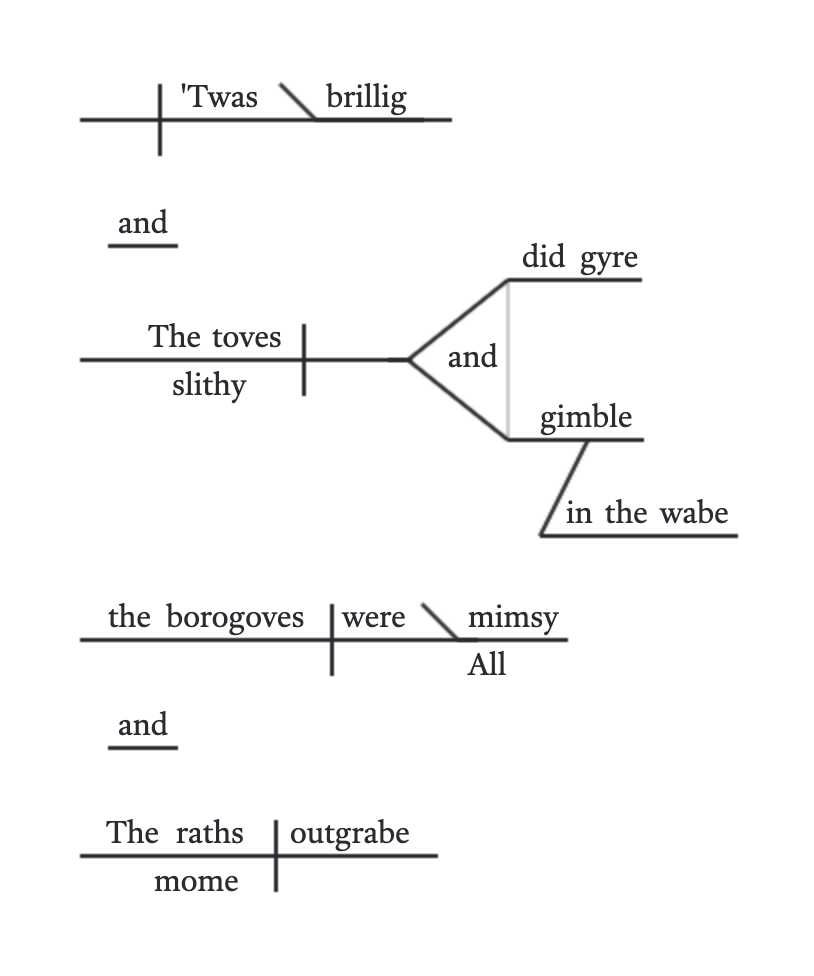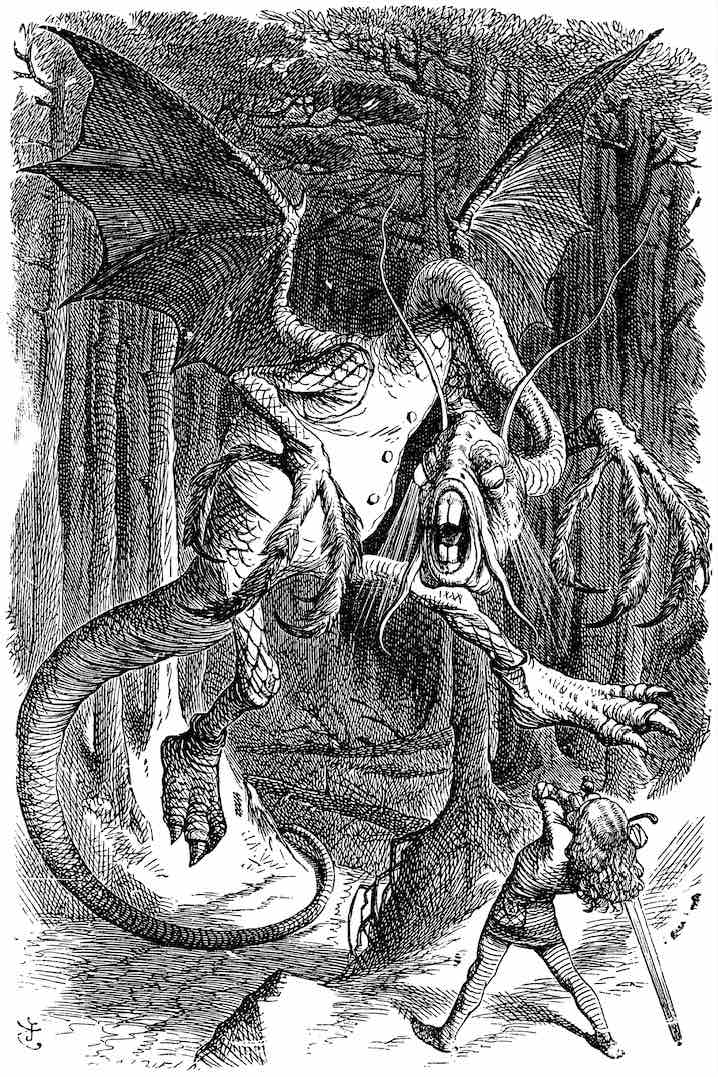Lesson 7 | Vocab
Beware the Jabberwock
If you can parse every Greek noun you meet perfectly, and have mastered the functions of each case ending, but have no idea what the words you're parsing mean, reading the New Testament in Greek is pointless.
For example, let's take the first stanza of Lewis Carroll's famous poem, Jabberwocky, about a dangerous beast called the Jabberwock:
’Twas brillig, and the slithy toves Did gyre and gimble in the wabe: All mimsy were the borogoves, And the mome raths outgrabe.
I could diagram it like this:

But that wouldn’t help me understand the poem at all! I would need to look up the “vocab”—and you can do so in Chapter 6 of Through the Looking Glass, where you'll discover, for example, that “slithe” means “lithe and slimy,” and that a “borogove” “is a thin shabby-looking bird with its feathers sticking out all round—something like a live mop”¹
The more words I need to look up, though, the more of a slog reading becomes. The more words you know before you read, the more pleasant reading becomes.
So keep reviewing your vocab words from Lessons 2 and 4, and work hard on learning these words! The payoff will be a deeper understanding and loftier pleasure in the text—in God's inspired Word, far more significant than a poem about a mythical monster!
